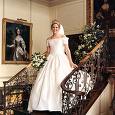
| A-Wedding Day had many requests for information about the chronology of steps for both the wedding ceremony and reception. I hope that the following steps will help you schedule the details involved with your wedding ceremony and reception. It is important that you note that these are general and the actual procedure for your personal wedding may vary according to your preference and these of your officiant as you incorporate your religion, heritage snd customs. I have included steps for incorporating kids in re-marriages and blending families. Ceremony Steps The ushers seat guests as they arrive for the ceremony. Order of family seating is: Groom’s Grandparents, Bride’s Grandparents, Groom’s parents Bride’s mother. The mother of the bride is seated last, unless she accompanies her daughter to the altar. The musicians play background music. At the scheduled start time, unless the officiant, the groom, and the best man are in the processional, they take their places at the altar (or ceremony place). There are a few options for the order of procession. The most traditional order of the processional is ushers and bridesmaids in pairs, followed by the maid of honor, ring bearer, and flower girl. The bride enters last, escorted by her father, or by both parents. Another quite traditional option is: The Officiant will go in first, followed by the Groom and the Best Man who will take their assigned places with the Best man facing the Groom and the guests. The groomsmen follow and take their assigned places. The musicians start to play the processional music. In the bridal procession, the outside Bridesmaid enters first, followed by the others. They are followed by the Maid of Honor. The Bridesmaids will stand in their assigned places, each directly accross from a Groomsman. The Ring Bearer is next followed by the Flower Girl. In Jewish weddings the traditional order is to have the Officiant and wedding party in their places. The groom is escorted by both parents who stay with their son to the left of the Best Man. The Bride is escorted by both parents who stay with their daughter to the right of the Maid of Honor. Mothers light the tapers for the Unity candle ceremony that will follow the bride and groom’s kiss, and – or place red wine, white wine and an empty decanter on the pulpit. After everyone is in their place, the candles are lit and – or the red wine, white wine and empty decanter are placed on the pulpit, the music will change to the Wedding March or another piece of music chosen by and significant to the bride and groom, and the Bride enters with her escort(s). The Officiant announces the purpose of the gathering, welcomes the guests and introduces the Bride and Groom. In a religious wedding, the officiant leads a brief opening prayer. Special readings, songs and or music follow. The officiant’s message. The vows – Bride and groom. In re-mariage family vows are not only appropriate but recommended. The vows for blending family are vows from parents to children. In a Jewish weding The Groom steps on and breakes a glass. The bride and groom sip from the same cup of wine. The exchange of rings and the pronouncement “pronouncing you husband and wife”. Bride and groom kiss. In re-mariage giving each child a piece of jewelry and the pronouncement “pronouncing you a new family”. Bride, groom and kids hug and kiss. Unity candle ceremony (In remarriage, include the kids). The officiant then introduces the bride and groom as husband and wife. In remarriage, the officiant then introduces the bride and groom and kids, preferably by names, as a new family. Exit procession: Bride and Groom Flower Girl Ring Bearer the Bride’s Maids and Groom’s Men in pairs Bride’s parents Groom’s parents Bride’s Grandparents Groom’s grandparents Take photos while the guests go to the reception. Reception Steps The reception starts with a receiving line th at includes the bride and groom, parents and attendants. At the same time it is appropriate for waiters to circulate with drinks and hors d’oeuvres while the receiving line is in progress. Background music played. The bride and groom can open the dancing either before or after food is served. If you are planning a dinner and dancing reception, the “bride and groom’s first dance” occurs after dinner followed by the bride dancing with her father and the groom with his mother after which other guests are allowed out on the floor. Toasts should begin at the end of the meal. The first toast is the best man’s toast to the bride. In re-marriage, the bride and groom introduce their children before the first toast. Other toasts. Cake cutting ceremony. The garter and bouquet tosses occur just before the couple is ready to leave for the honeymoon. The guests send the couple off for their honeymoon with a shower of rice, rose petals, or bubbles, balloons, butterfly release or doves release. After the honeymoon, do not forget to write the thank-you notes. Copyrights © 2008 All Rights Reserved Nily Glaser, |










